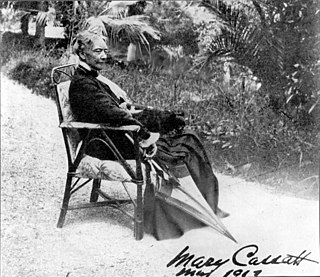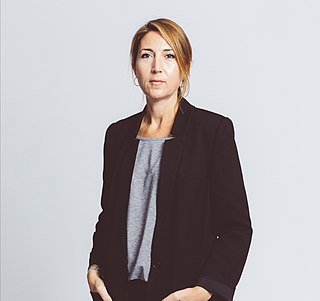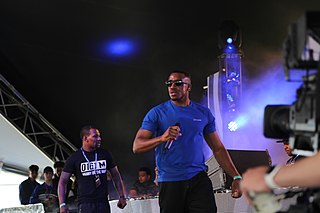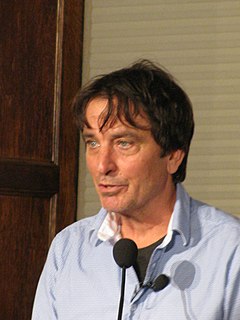Цитата Мэри Кассат
Иногда его [Дега] приводило в ярость то, что он не мог найти щель в моих доспехах, и бывали месяцы, когда мы просто не могли видеть друг друга, а затем что-то, что я рисовал, снова объединяло нас.
Связанные цитаты
Мы так старались. Мы всегда старались помочь друг другу. Но не потому, что мы были беспомощны. Ему нужно было что-то для меня достать, так же как мне нужно было достать что-то для него. Это дало нам цель. Иногда я просила его о чем-то, чего я даже не хотела, просто чтобы он дал это мне. Мы проводили наши дни, пытаясь помочь друг другу помочь друг другу. Я бы взял его тапочки. Он сделает мне чай. Я включал отопление, чтобы он мог включить кондиционер, чтобы я мог включить отопление.
Коул поцеловал меня... Это был поцелуй, от которого нужно долго оправляться. Вы можете взять каждый из наших поцелуев с самого первого момента нашей встречи и поместить их на предметное стекло в микроскоп, и я был почти уверен, что вы обнаружите. Даже эксперт ничего не увидит на первом, а затем на следующем, начало чего-то - в основном численно превосходящего, легко уничтожаемого - и затем все больше и больше, пока, наконец, это, что-то, что мог заметить даже неопытный глаз. Доказательство того, что мы, вероятно, никогда не излечимся друг от друга, но, возможно, сможем удержать его от смерти.
У меня было много больших озер невежества, с которыми я сталкивался, я писал то, что знал, почти как острова, которые поднимались из океанов. Затем я брал перерыв и читал, иногда в течение нескольких месяцев, затем я писал больше того, что знал, и видел то, что мог видеть, настолько, насколько я мог видеть историю. А потом в какой-то момент мне пришлось написать то, что я считал сюжетом, потому что было так сложно удержать все это в голове. А потом я стал писать более линейно.
Его взгляд впился в мой, как будто он мог заглянуть сквозь мои глаза в те части меня, которые никто никогда не видел, и я знала, что вижу то же самое в нем. Никто еще никогда не видел его таким уязвимым, как если бы я оттолкнула его, он мог рассыпаться на куски, которые уже никогда не собрать вместе. Но была и сила. Он был силен под этой хрупкой потребностью, и я знала, что никогда не упаду с ним рядом со мной. Если я споткнусь, он поймает меня. Если я потеряю равновесие, он найдет его.
Он был великолепен; очень умный с выдающейся техникой. Он мог передать мяч на пять или пятьдесят ярдов; он мог видеть вещи, чтобы подставить других людей; он мог стрелять и мог забивать голы. Если бы вы дали мне Пола Скоулза и еще десять человек, я был бы счастлив. Я бы сказал им отдать ему мяч, и тогда у нас была бы хорошая команда.
Тогда я как будто вдруг увидел тайную красоту их сердец, глубины их сердец, куда не могут проникнуть ни грех, ни желание, ни самопознание, суть их реальности, личность, которой каждый из них является в глазах Бога. Если бы они только могли видеть себя такими, какие они есть на самом деле. Если бы мы могли все время видеть друг друга такими, не было бы больше ни войны, ни ненависти, ни жестокости, ни жадности. . . Я полагаю, что большая проблема будет заключаться в том, что мы будем падать и поклоняться друг другу.
Я впервые почувствовал усталость и подумал о том, как мы лежим вместе на каком-то травянистом участке Морского мира, я на спине, а она на боку, обняв меня рукой, положив голову мне на плечо, лицом ко мне. Ничего не делать — просто лежать вместе под небом, ночь здесь так ярко освещена, что заглушает звезды. И, может быть, я чувствовал бы ее дыхание у себя на шее, и, может быть, мы могли бы просто остаться там до утра, а потом люди проходили бы мимо нас, входя в парк, и они видели бы нас и думали, что мы тоже туристы, и мы могли бы просто исчезнуть в них.
Иногда я видел своего отца, идущего мимо моего дома по пути в другое никуда. Я мог бы дать ему ключ, предложить кусок своего пола. футон. Кровать. Но я никогда этого не делал. Если я впущу его внутрь, я стану им, грань между нами размоется, моя собственная автокатастрофа в замедленной съемке ускорится. Слоган на борту грузовика транспортной компании гласил: «ВМЕСТЕ МЫ ИДЕМ МЕСТА» — вандал или недовольный сотрудник изменил его на «ВМЕСТЕ МЫ ИДЕМ ВНИЗ». Если я пойду к утопающему, утопающий утащит меня под воду. Я не мог быть его спасательным плотом.
Я представил разум Кандинского, разбросанный по всему миру, а затем собравшийся воедино. Каждый имеет только часть головоломки. Только на таком шоу можно было увидеть полную картину, сложить кусочки, посмотреть на свет и увидеть, как все это сочетается друг с другом. Это вселило в меня надежду, что когда-нибудь моя жизнь тоже обретет смысл, если я просто смогу собрать все кусочки воедино одновременно.
Другая вещь в [Полевом музее естественной истории], которая вдохновляла, заключалась в том, что в группе горшков вы не увидите ни одного примера такого горшка. Возможно, вы увидите случай с 20 различными примерами. Итак, вы понимаете, что эти горшки можно было бы повторять снова и снова, и каждый раз в них были бы небольшие вариации.
Я смотрела на Жан-Клода, и не его красота заставила меня полюбить его, а только он сам. Это была любовь, состоящая из тысячи прикосновений, миллиона разговоров, триллиона общих взглядов. Любовь, состоящая из разделенных опасностей, поверженных врагов, решимости ни одного из нас не изменит другого, даже если бы мы могли. Я люблю Жан-Клода, всего его, потому что, если я уберу макиавеллиевские замыслы, лабиринт его разума, это уменьшит его, сделает его другим.
Я не хотел двигаться. Ибо у меня было ощущение, что это было место, однажды увиденное, которое нельзя будет увидеть снова. Если бы я ушел, а потом вернулся, это было бы не то же самое; сколько бы раз я ни возвращался в это конкретное место, это место и чувство никогда не будут прежними, что-то будет утеряно или что-то прибавится, и никогда, на протяжении всей вечности, никогда не будут существовать снова, на протяжении всей вечности, все интегрированные факторы, которые создали это место. что это было в этот волшебный момент.








































